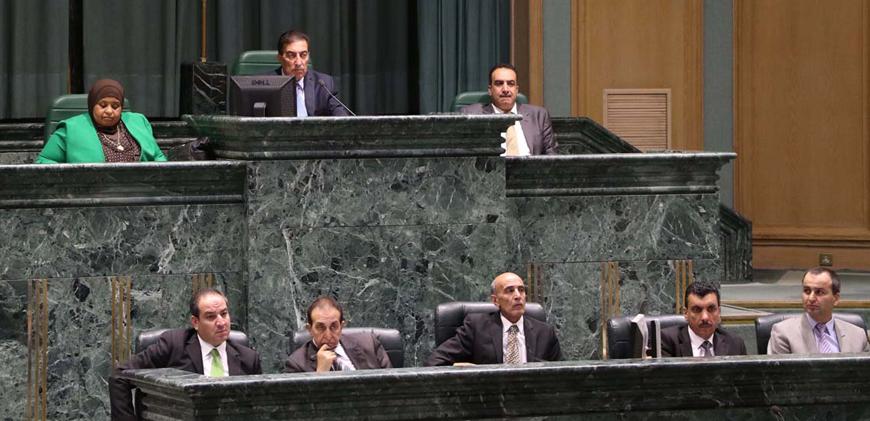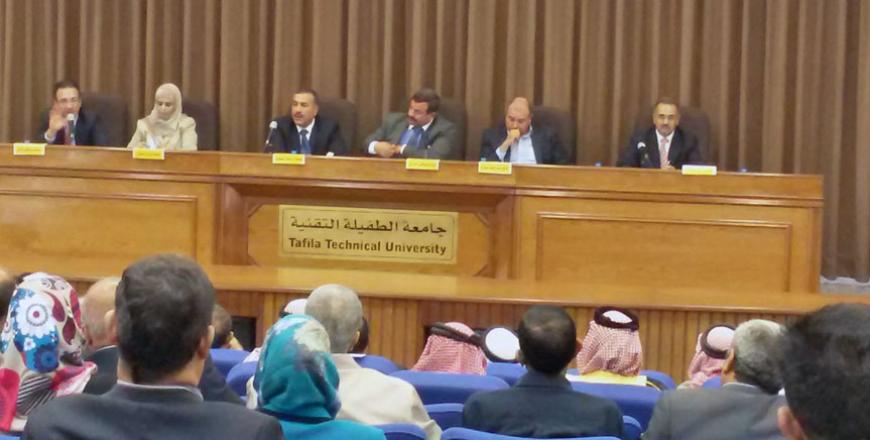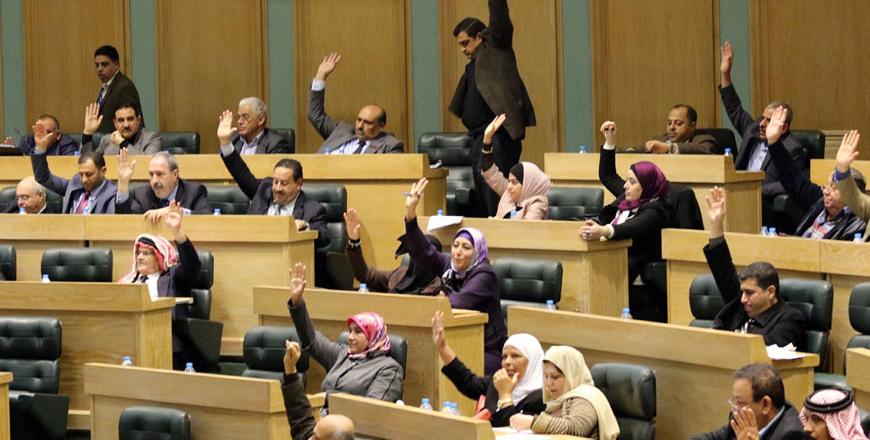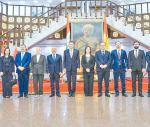You are here
House sharply divided over suggested elections law
By Raed Omari - Sep 14,2015 - Last updated at Sep 14,2015

House Speaker Atef Tarawneh chairs a meeting to debate the proposed elections law in Amman on Sunday (Petra photo)
AMMAN — MPs were divided on Sunday over the 2015 parliamentary elections bill with some calling for sending it back to the government, while others described it as progressive and serves the reform process.
As customary, the House referred the proposed elections law to its Legal Committee for examination.
During Sunday’s House session, several MPs also cast doubt on the constitutionality of some articles of the new elections law, requesting the opinion of the Constitutional Court before the House begins its deliberations over the keystone reform law.
In a memorandum they signed, a group of 20 MPs questioned the constitutionality of leaving the number of electoral districts and parliamentary seats to the government to decide and include in a by-law.
Constitutional expert Mohammad Hammouri has explained that that dividing the Kingdom into electoral districts and defining parliamentary seats should be made clear in the law, not in a by-law issued by the government.
Citing Article 67 of the Constitution, Hammouri explained in a recent opinion piece that electoral districts and the number of parliamentary seats is a matter that “lies at the heart of citizens’ constitutional rights and, thus, should not be left for the government to decide on”.
As worded by the government, Paragraph A of Article 8 of the draft elections law reads: “The Kingdom will be divided into electoral districts for which 130 parliamentary seats will be allocated according to a by-law.”
According to Article 67 of the Constitution: “The Chamber of Deputies shall consist of members elected by secret ballot in a general direct election and in accordance with the provisions of an electoral law.”
Veteran MP Abdul Hadi Majali (National Current bloc) called on the government to withdraw the law from the House, arguing that the multi-member ticket at the governorate level is “just a replication of the one-person, one-vote system”.
Expressing dismay over the government’s statement that the new law is like the always-praised 1989 elections law, Majali said, “The government could have improved the national lists and not replaced them with proportional lists.”
Unveiling the law, Prime Minister Abdullah Ensour said that the closed proportional list at the national level was removed from the new law as “it was ruled as unconstitutional by the Higher Council for the Interpretation of the Constitution,” which was replaced by the Constitutional Court.
Under the 2012 law, on the basis of which the 2013 parliamentary elections were held, each voter was given two votes: one for a candidate at the district level and another for a closed proportional list that competed for 27 seats at the national level.
MP Khalil Atiyyeh commended the government for drafting such a “progressive” law, claiming that the new law will have its “immense” contributions to the country’s reform process.
Other deputies called for cancelling all quotas stipulated in the law, describing them as unconstitutional and against principles of equality and fair competition.
Salt MP Nidal Hiyari described the law as “disappointing”, calling for a nationwide dialogue on the reform-oriented bill before being endorsed by the House.
Some deputies called for allowing Jordanian expatriates to participate in parliamentary elections, while others called for toughening the penalties on the use of political money.
Head of the Legal Committee MP Mustafa Amawi said that the panel would brainstorm over the draft law with all segments of society, including political parties, professional associations and civil society organisations.
Responding to MPs’ remarks, Ensour said that the law is now at the House and lawmakers can do whatever amendments they see necessary. “There is enough time to endorse the law and we have no fears from MPs’ decisions because they will show a high sense of responsiblity.”
Stressing that the quota system is “constitutional and positive”, Ensour said that there are 50 Jordanian missions abroad and allowing Jordanian expatriates to vote will be a costly process.
Related Articles
AMMAN — The Lower House on Sunday endorsed the Upper House’s amendments to the 2015 elections law, the last in a reform-oriented legislative
AMMAN — While constitutional experts were criticising the 2015 draft parliamentary elections law as replete with “constitutional flaws”, the
AMMAN — The Lower House on Tuesday passed the draft 2015 parliamentary elections law with minor changes following six marathon sessions that


















